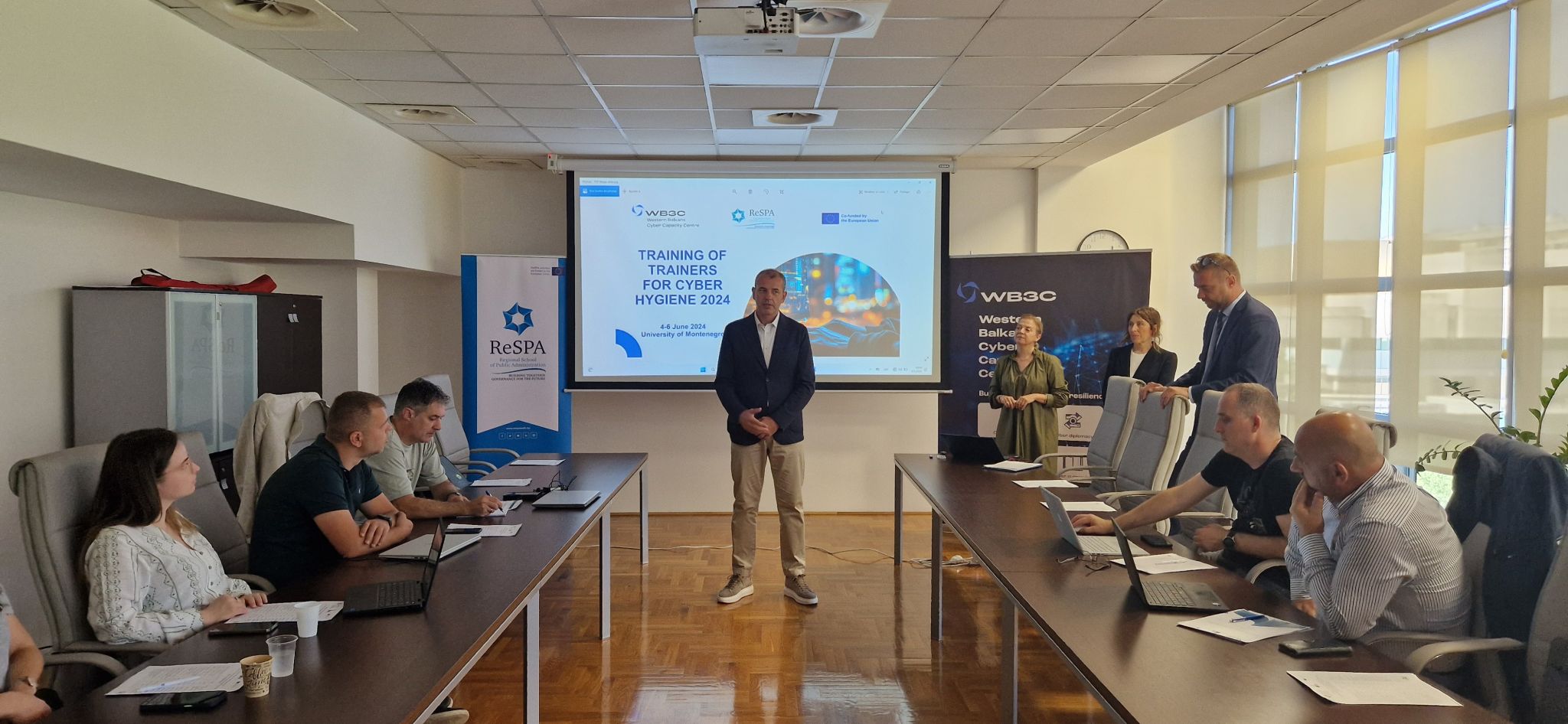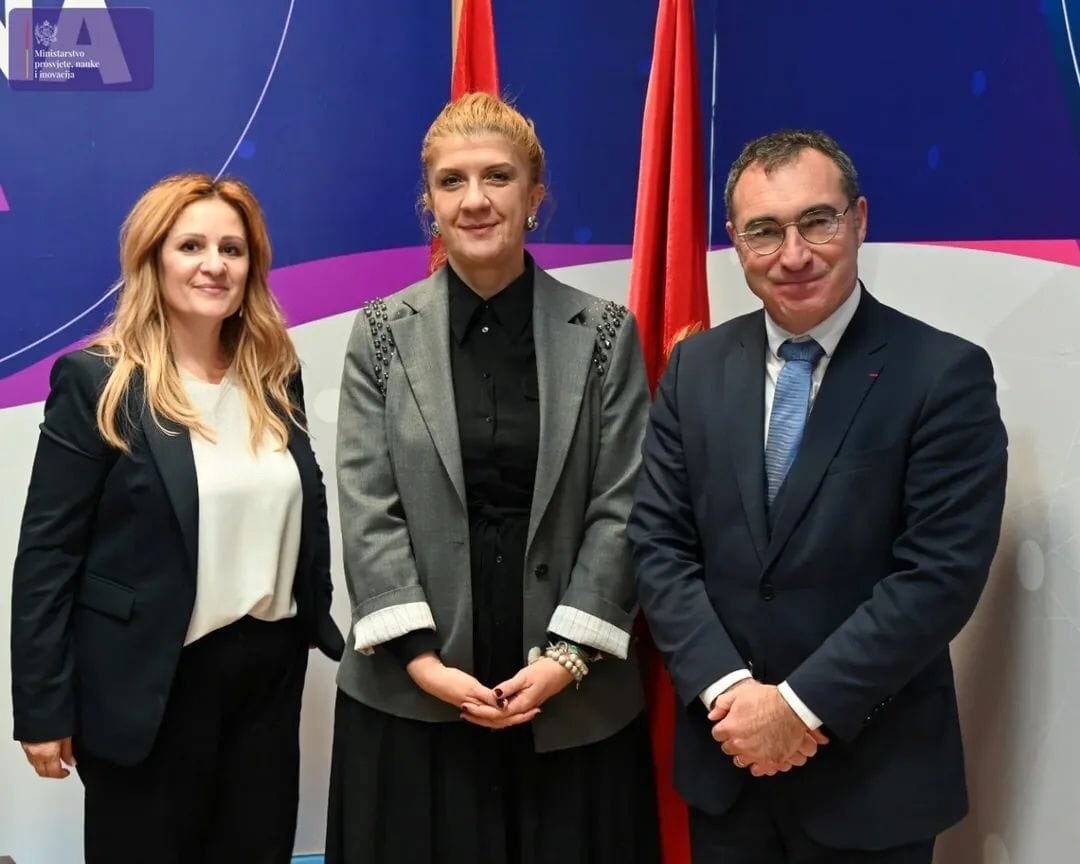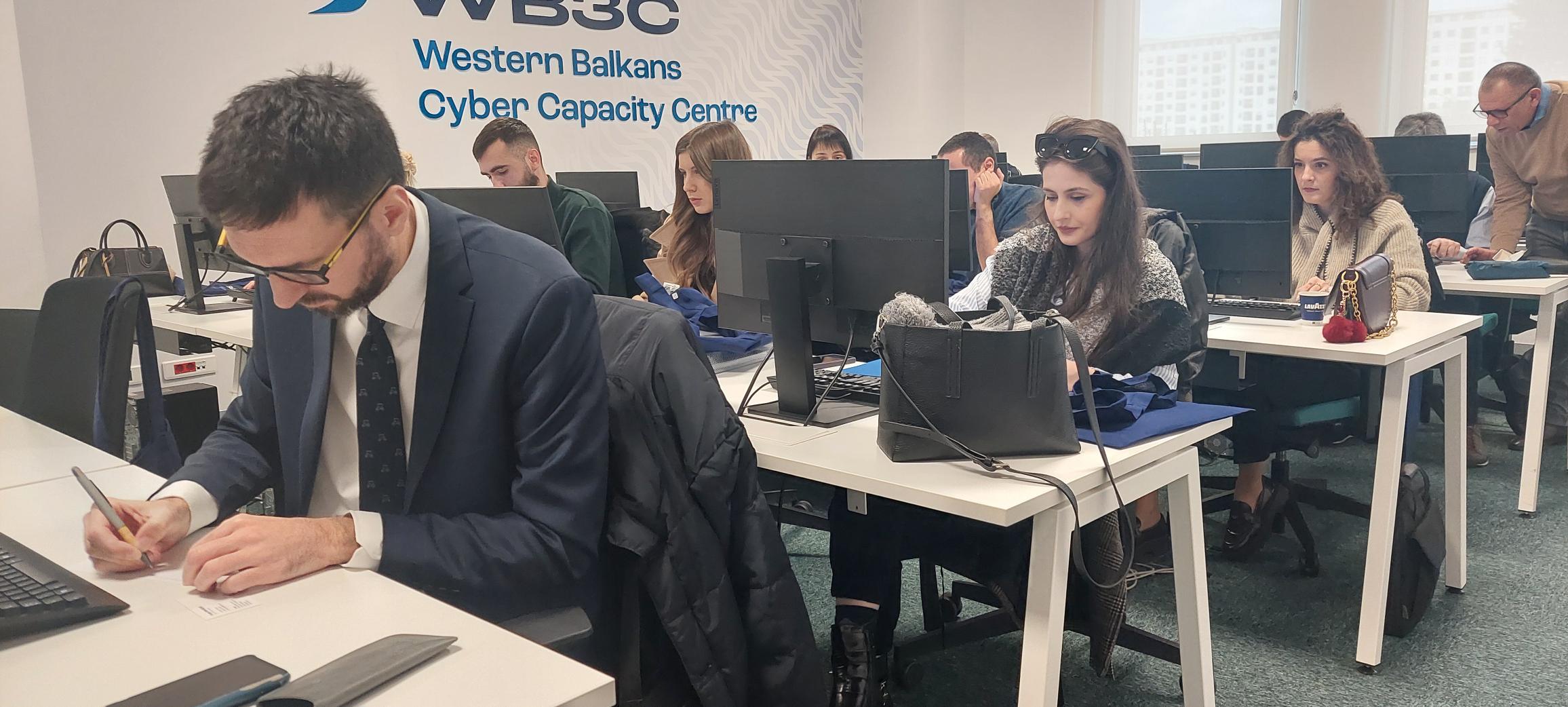In a major step towards strengthening cyber resilience and promoting a robust cybersecurity culture in the Western Balkans, the Regional School of Public Administration (ReSPA) andthe Western Balkans Cyber Capacity Centre (WB3C) launched a three-day comprehensive Training for Trainers in Cyber Hygiene today at the University of Montenegro's Rectorate building.
The training aims to educate 17 senior public officials to become skilled trainers in cyber hygiene. Equipped with new knowledge and skills, these officials will be able to train their peers to better recognise and manage cybersecurity risks at the operational level.
Cybersecurity is not just a technical issue but a fundamental aspect of national security and public administration efficiency. Our collaborative efforts with our partners from the WB3C are significant steps towards a resilient cyber ecosystem in the Western Balkans. Understanding and adopting the skills in cyber hygiene across public administrations willstrengthen this first line of protection, and augmenting the number of civil servants practising it will enable their organisations to react promptly or recover swiftly if attacks occur. This training will result in having new trainers in public administration on cyber security, new resources for transferring the knowledge and ultimately achieving bigger digital security and resilience, underlined Olivera Damjanović, ReSPA Programme Manager.
Cedric Grousset, Head of the Western Balkans Cyber Capacity Centre, emphasised the
importance of strong collaboration between the Centre and public institutions and partners,
including the Ministry of Public Administration of Montenegro and ReSPA. He highlighted
the significance of a regional approach in training modules for civil servants.
Today, for the first time, we have gathered civil servants from the Western Balkans who work in cyber security to learn, exchange ideas, and advance in cyber hygiene and cyber security. More importantly, we will train them to become trainers, enabling them to further disseminate this knowledge to their peers across the region.
Dušan Polović, Director of the Directorate for Infrastructure, Information Security, Digitization, and e-Services in the Ministry of Public Administration, also addressed the participants, emphasizing the importance of continuously developing resilient cyber security structures in the Western Balkans. He noted that this three-day training is a crucial step in strengthening regional capacities in cyber security.
The training combines engaging lectures, in-depth skill acquisition, theoretical insights, and practical exercises on cyber hygiene. This approach will produce highly skilled trainers and advocates who understand the importance of preventative measures and effective cyber risk management.
Completing this training is a significant milestone in the region's journey towards improved cyber security. Since last year, ReSPA and WB3C have been collaborating on initiatives to support the public administration of the Western Balkans in data protection and cyber security.
The Regional School of Public Administration (ReSPA) represents a distinctive, regionally- driven platform committed to advancing the reform of public administration (PAR) by fostering policy dialogue at the highest levels, sharing expertise, facilitating learning opportunities, fostering networking initiatives, promoting public sector mobility and capacity building, conducting topical research, and meticulously analysing policies.
Established as a collaborative initiative between the European Commission and the governments of the Western Balkans, ReSPA operates under the stewardship of five Member States: Albania, Bosnia and Herzegovina, North Macedonia, Montenegro, and Serbia, with Kosovo* benefitting from its programs.
With a primary focus on empowering civil servants, ReSPA endeavours to catalyse the development of modern, transparent, and efficient public institutions capable of effectively serving their citizens and facilitating the European integration process within the Western Balkans.
The Western Balkans Cyber Capacity Center (WB3C) is a regional cyber capacity-building initiative based in Montenegro. It is a training center focusing on fight against cyber crime, cyber security and cyber diplomacy. It aims at improving the cyber capacities and cyber resilience of the Western Balkans admistrations. Besides education and training for specialised groups of professionals and training for trainers WB3C promotes exchange of good practices, regional and international cooperation between administrative, technical and educational institutions.
France and Slovenia in partnership with Montenegro initiated this project in order to facilitate region’s approximation the EU membership.






